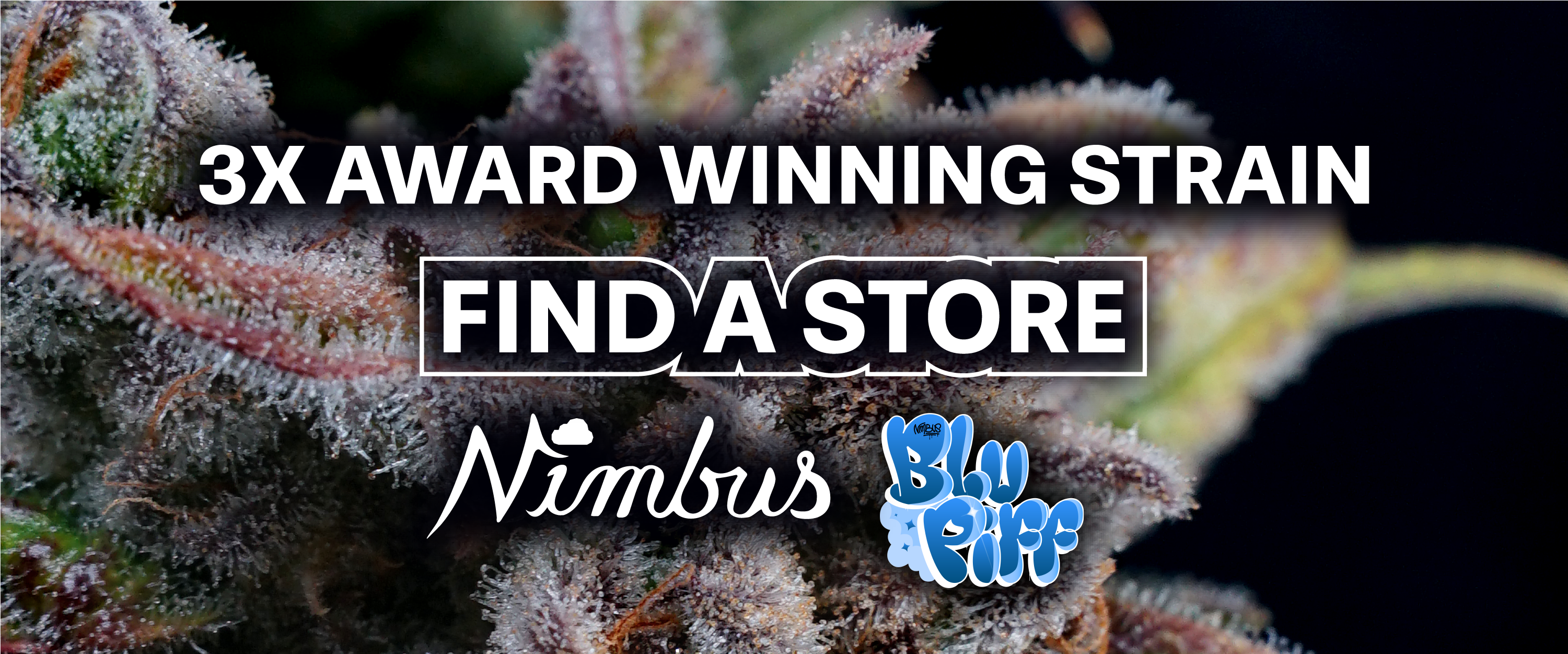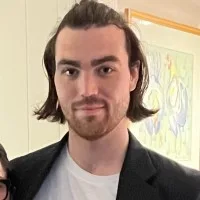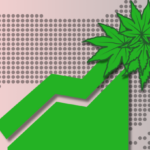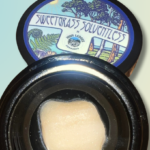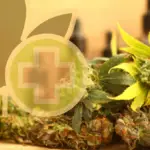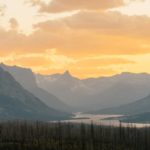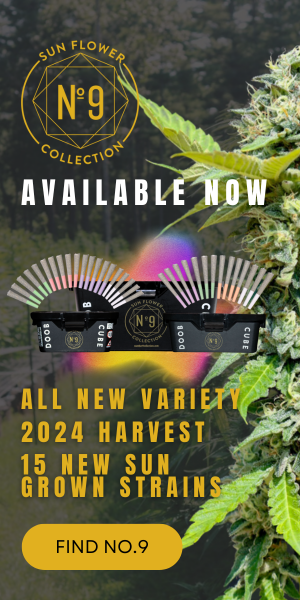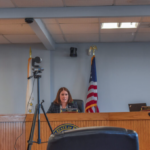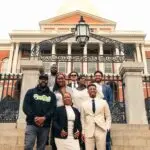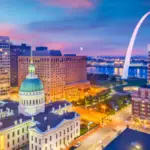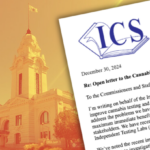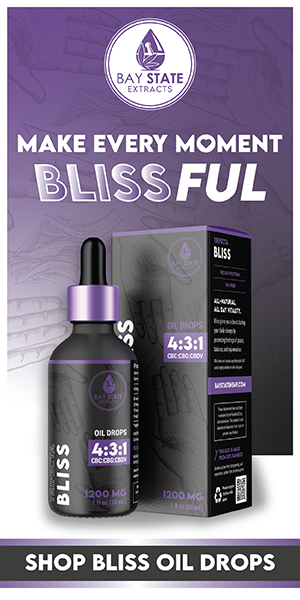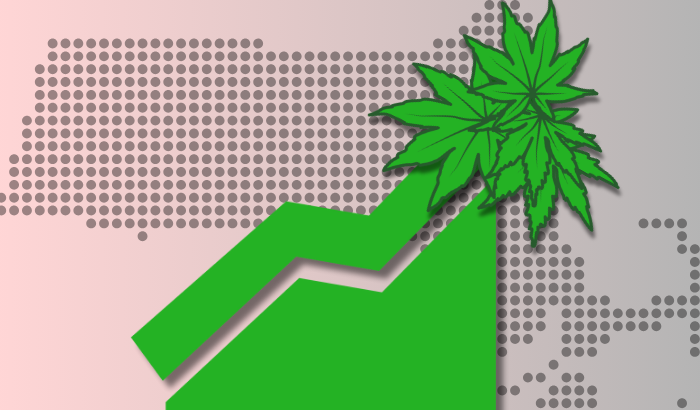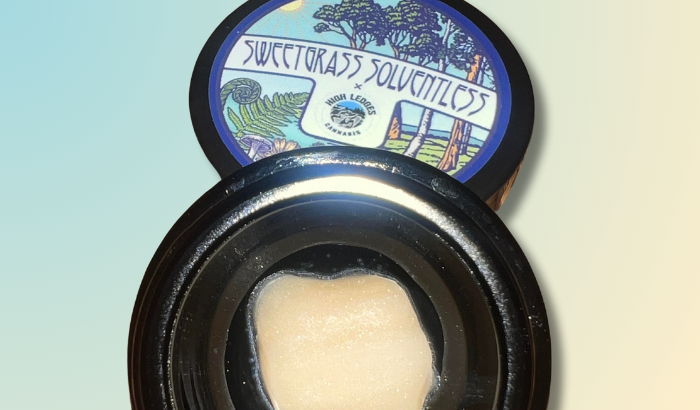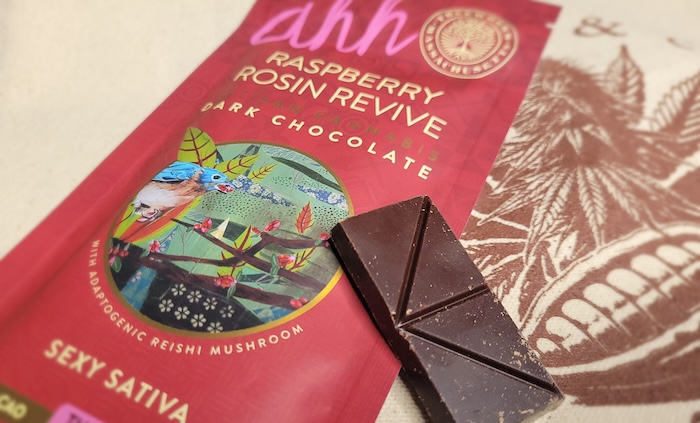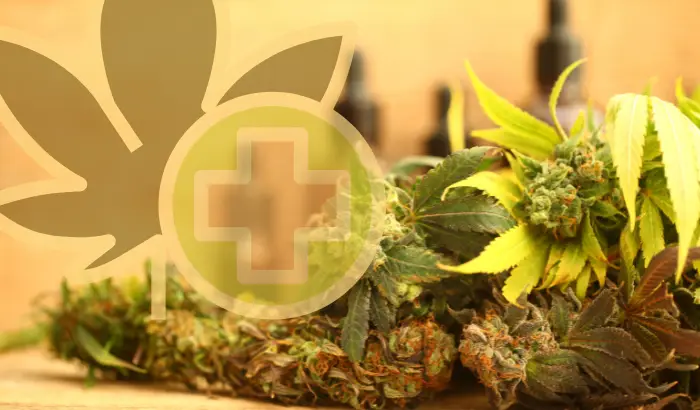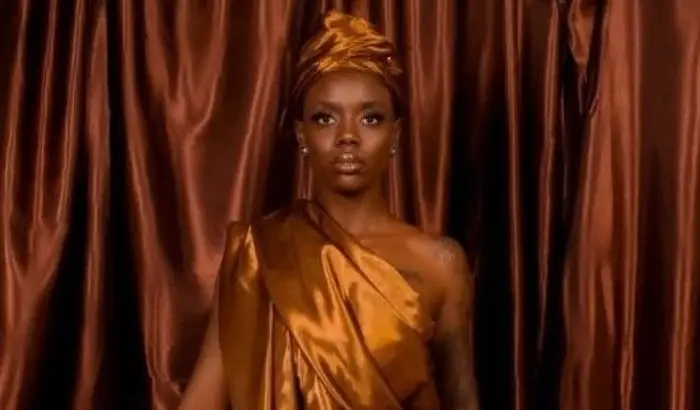
“One of the biggest misconceptions I hear is that psychedelics are ‘white people stuff.’ This is far from the truth.”
With Massachusetts voters facing a referendum on plant medicine this coming November, the public has heard from several stakeholders and interest groups—from grassroots advocates, to medical professionals, to parents helping their children endure major medical problems.
US Navy veteran Imani Turnbull-Brown represents some factions that are deeply involved with the struggle to destigmatize psychedelics but aren’t always heard from—military voices, and people of color with roots in a movement that run deeper than contemporary political currents.
Born in Dorchester and raised in Portland, Maine, Turnbull-Brown comes from a multigenerational military family; both her grandfathers, her father, and her two brothers all served. She joined the family business in 2008, enlisting in the Navy and serving as an internal communications electrician and seaman apprentice while stationed in Washington state.
In her journey into advocacy, Turnbull-Brown has been a member of the Oklevueha Native American Church (ONAC) for nearly a decade, and attended The Sanctuary, a “center for shamanic study and ancient wisdom” in Callicoon, New York. Currently a resident of Randolph, Mass, she’s provided guidance to family and community members seeking information about plant meds for nearly a decade.
JG: When and why did you first become interested in psychedelics?
ITB: I became interested in psychedelics at a very young age, influenced by my father’s strong advocacy for their potential benefits. As I grew older and conducted my own research, I recognized the profound impact—both positive and negative—that psychedelics can have on individuals and society. Through my deepening spiritual work, I came to appreciate the immense potential of psychedelics while also understanding the importance of treating them with the utmost respect and reverence.
One of the biggest concerns surrounding psilocybin-assisted therapy is the high cost of treatment sessions. How do you think this issue can be addressed—be it legislatively, commercially, or otherwise—to make psychedelic medicine more accessible to a wider range of patients?
When discussing high costs, an article that comes to mind is “Enhancing Equity-Oriented Care in Psychedelic Medicine: Utilizing the EQUIP Framework” by Kerri Rea and Bruce Wallace, published in the International Journal of Drug Policy in 2021. It addresses numerous obstacles that could be mitigated or potentially avoided. Equity must be at the forefront of discussions to avoid repeating past mistakes.
The article emphasizes the need for broader insurance coverage, which could significantly lower the cost of therapy. However, this alone is insufficient. It is also crucial to incorporate cultural safety, trauma-informed care, harm reduction, and context-specific responsiveness in the development and administration of psychedelic-assisted therapies. Without these considerations, these therapies may not reach the individuals who need them most, perpetuating the same mistakes of the past by failing to acknowledge, respect, and consider the origins and awareness of psychedelic therapies. Equity-oriented psychedelic medicine is crucial for addressing social inequities and structural violence in accessing these treatments.
Psychedelic colonization has been a hot-button intersectional issue across generations within the psychedelic activist community, and indigenous American access to certain psychedelic plants (such as peyote, mescaline, etc.) that are considered sacraments is often at the center of this hotly contested topic. What are some considerations that non-indigenous/non-POC psychedelic advocates should consider when educating about the contemptuous history behind this issue?
It is crucial to recognize that white supremacy plays a significant role in the current landscape of psychedelics, and this must always be considered. Plant medicines originate from BIPOC cultures, yet they have been appropriated, leading to the exploitation and whitewashing of these traditions connected to them.
True allies among non-BIPOC individuals must be aware of these dynamics and actively work against further colonization of these medicines. They should advocate for equity and access for BIPOC communities, who often benefit most from psychedelics but are frequently marginalized. Many marginalized groups could greatly benefit from psychedelics, yet they are often neglected. This neglect should be unacceptable to true allies. While some non-BIPOC individuals respect the origins of psychedelics and honor those who have worked with these medicines for millennia, many do not, which is deeply detrimental. One cannot claim to be an ally without fully acknowledging and addressing the relationship between white supremacy and psychedelics.
Ibogaine, a psychedelic compound found in the root of the iboga tree, has shown promise as a potential “wonder drug” in the treatment of severe addiction, PTSD, and other related mental/behavioral health conditions. It’s also native to West Africa, a region currently facing a new wave of political unrest along with the inherent dangers of medical colonization of the region’s supply of iboga. How might equitable intersectional access to ibogaine/iboga be preserved/achieved in a post-colonial western system of healthcare?
I believe Gabon’s decision to sign the Nagoya Protocol [in 2011] was a commendable step in the right direction. This treaty ensures that profits derived from genetic resources benefit the communities that steward them. If Gabon chooses to share the iboga plant with the world, it is imperative that the country and its people benefit from this exchange, preventing another instance of plant medicine colonization. The communities that cultivate and protect this sacred plant must have a significant role in discussions about access and equity.
As psychedelic medicine continues to gain traction around the world, what do you see as the best and worst-case scenarios for its future in the United States?
The best-case scenario is that the origins of psychedelic medicines are respected and acknowledged, ensuring equity among the communities that steward these medicines, as well as providing access and proper education. The EQUIP framework is an excellent starting point for this effort.
In the worst-case scenario, we’d see the United States continue its history of colonization, leading to the exploitation of these medicines and the communities that use them, with no regard for their spiritual, ceremonial, and sacred aspects. Pharmaceutical companies may synthesize the components they find profitable, disregarding the rest. Significant profits will be made, yet none will benefit the marginalized groups that should rightfully gain from them.
You and I have previously had some riveting discussions about some of the stigmatization surrounding psychedelic use within POC communities and culture. Could you speak to some of the core issues and common misconceptions that you’ve encountered in your work as a psychedelic advocate?
One of the biggest misconceptions I hear is that psychedelics are “white people stuff.” Ironically, this is far from the truth. Most mainstream psychedelics originate from places like Gabon, as well as Central and South America.
Some POCs may not realize how long we have been misinformed, and that this misinformation was by design and a construct of white supremacy. For decades, systems have been in place to deter us from healing and succeeding, and this is no different. Why would those in power want POCs to find ways to heal independently?
One of the biggest issues in educating the BIPOC community is that there is so much misinformation, and there are few people who look like us speaking about these issues. Our unique traumas and perspectives must be represented. Psychedelics could be a powerful tool for BIPOC, but it is crucial for community leaders to educate and work to undo long-held misconceptions. Being BIPOC in the United States comes with additional challenges. Black people, in particular, have all been affected by white supremacy and the war on drugs, whether directly or indirectly, and they continue to impact our communities. We need spaces for us, groups for us, and support for us when it comes to psychedelics.
What would you say to parents, families, and individuals who might be against or still on the fence about the use, decriminalization, and/or legalization of psychedelics?
The only advice I would give them is to fully educate themselves, keep an open mind, and don’t be afraid to ask questions. It is not anyone’s job to convince others about psychedelics. The information is available, and if someone chooses to remain ignorant and not consider the full picture, that is their prerogative.
Aside from yourself, who are some other leaders, innovators, and/or advocates in the psychedelic science community that you think more people should know about and hear from?
Some folks that come to mind, in no particular order are Monnica Williams, Aisha Mohamed, Ifetayo Harvey, Robin Divine, Steve Huang, Buki Fadipe, Camille Barton, Imani Robinson, Jeeshan Chowdhury, Cyndi Suarez, Hanifa Nayo Washington, Victoria Sanders (Vic Styles).
What’s next for your personal and organizational advocacy work?
I have a few projects in mind aimed at normalizing psychedelics within the Black community.


